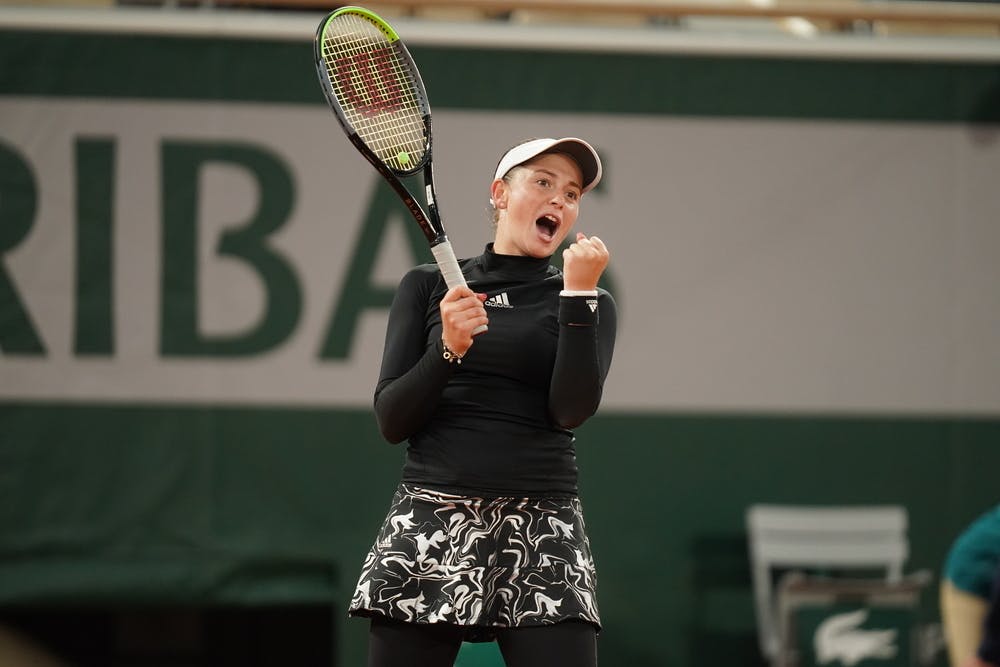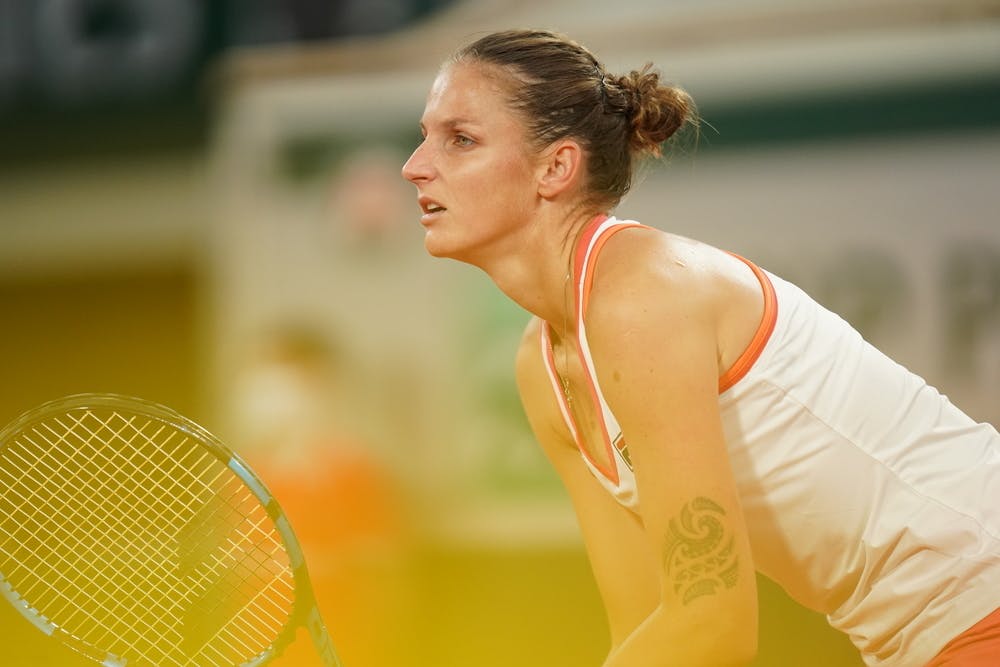That preparation now includes experienced coach Thomas Hogstedt, who is in her corner after a brief, unsuccessful trial with Briton Johanna Konta.
The Swede is famous for instilling discipline in his players and his experience, having worked with Maria Sharapova and numerous others, will be invaluable.
In her first two matches, she has shown the kind of variety needed to succeed on clay, something that will stand her in good stead as the tournament progresses.
“Girls are expecting me always to hit the ball so strong,” she said. “Especially here on clay, (the drop shot) is useful because the bounces are much lower because it's much colder this year. Even if I can't hit winners, sometimes to mix it up and the girls don't expect it, so I think it's useful for me.”
It may be only three years since Ostapenko won Roland-Garros but she is not fixated on the past, rather, looking to the future.
“In the beginning, it was tough to deal with all this pressure which was on me because obviously I was the first one from like the year 1997 to win a Grand Slam,” she said.
 ROLAND-GARROS
19 May - 8 June 2025
ROLAND-GARROS
19 May - 8 June 2025



 © Cédric Lecocq/FFT
© Cédric Lecocq/FFT
 © Cédric Lecocq/FFT
© Cédric Lecocq/FFT